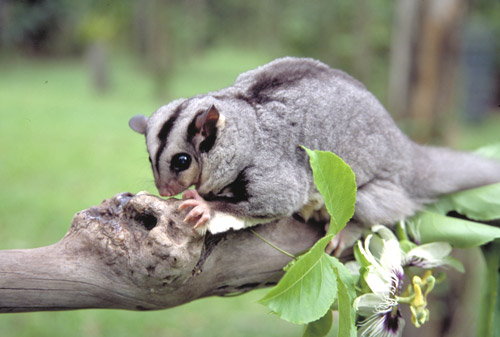


It should come as no surprise that Hinchinbrook homes an incredible array of beautiful native wildlife, from shy gliders to bold cassowaries! Whilst many are iconic North Queensland symbols, some are becoming increasingly threatened, and it’s important to note how you can care for each of these gorgeous creatures.
Brushtail Possums
Don’t be surprised if you hear a scurry in your roof at night as it may be a brushtail possum. These adaptable marsupials are common in Hinchinbrook and often set up home in sheds, house eaves, and tree hollows. In urban areas, they navigate fences and powerlines to forage for fruit, however, if you suspect a possum has moved in uninvited, check for fur, droppings, or entry points in your roof. Trapping and relocating should only be done with care and locals are encouraged to contact North Queensland Wildlife Care Inc. on 0414 717 374 for help with injured or orphaned possums.
Agile Wallabies
Often spotted grazing around the TYTO Wetlands or on the edges of town, agile wallabies are a familiar and cherished sight, recognisable by the white stripes on their cheeks and thighs. Unfortunately, these gentle animals are particularly vulnerable to cars, dogs, and illegal hunting and its strongly encouraged to call the wildlife care number connect with a local carer if you find an injured wallaby or orphaned joey.
Southern Cassowaries
The southern cassowary is an elusive but majestic resident of Hinchinbrook’s rainforests. These endangered birds are known for their deep, booming calls and striking appearance, complete with a helmet-like casque atop their heads, however, if you’re lucky enough to spot one, keep your distance as cassowaries can become aggressive if threatened. It’s advised to never feed them, and if you come across an injured bird or orphaned chick, call the Cassowary Recovery Team hotline on 1300 130 372.
Mahogany Gliders
Seldom seen and officially endangered, mahogany gliders are a true treasure of North Queensland. These nocturnal gliders live in the forests between Townsville and Tully, soaring from tree to tree with ease, unless development interrupt their flight path. To help, the region has introduced clever solutions like rope bridges and launching poles along major roads to keep gliders off the ground and out of danger.
So keep your eyes peeled Hinchinbrook, and you may spot one of the region's most treasured wildlife wonders next time you're out and about!

